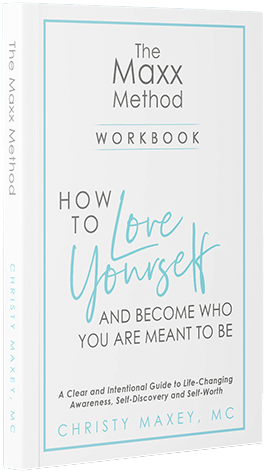I have been thinking a lot lately about feelings of loneliness and how to overcome them. Over the years I have observed an increase in loneliness in my clients and amongst some of the people I know personally. In fact, a recent study has revealed that nearly half of all American adults reported feeling lonely, left out, and isolated.
What is important to consider, when it comes to loneliness, that it is not merely just a sad state or rut that some of us experience. Beyond the mental anguish that results from loneliness, there are the actual negative effects on our physical well-being.
In my two decades of working with clients, I have found that there are three core issues that result in loneliness. When these issues are properly addressed, those suffering from isolation and loneliness can break out of their shells and find contentment in the presence of their friends, family, and communities.
Three Causes of Loneliness and How to Overcome Them
#1. Shame
When we are ashamed of ourselves, we carry that shame with us in everything we do. Shame, when not properly addressed, often becomes toxic and keeps us from living as our authentic selves. Since we feel that shame in all that we do, we attempt to hide it from others. If you suffer from feelings of not being good enough or unworthy of love/respect/kindness, you are far less likely to seek out the company of others. Since those with shame may view themselves as unworthy or unlovable, they avoid meaningful relationships.
The toxic thinking that comes with shame serves as a rationale for isolation.

Since we are so shameful and unworthy, we convince ourselves that others will think the same of us, so we avoid them.
One of the first steps towards coming out of our shell and getting over the loneliness hump is to view ourselves as worthy. When we address our feelings of shame and come to understand that are our past does not have to define our present or future.
We can move forward with our lives.
When we practice self-care and become compassionate for ourselves, we can see the positive aspects of ourselves as individuals. When we are compassionate for ourselves, we reach a healthy state that allows us to feel good about who we are. And since we feel good about ourselves, we want to share that goodness with others.

#2. Insecurity
When we are not secure in who we are as individuals, we lack the confidence to get to know others, to put ourselves out there. The pain of being insecure is not just the anguish of thinking that we cannot succeed, but it also prevents us from taking risks or trying new things.
Since we lack the confidence to believe in ourselves, we assume that others will see us in the same light.
If we have experienced a failed relationship or awkward social interactions in the past, we do what we can to avoid them so that we will not have to experience that embarrassment or pain again.
Because we are not inclined to interact socially—over time—we become more isolated, atomized, and alone.
One of the best exercises anyone can do to combat their insecurity is to take the time and write down the things that they are good at and what about themselves they are proud of. When we acknowledge our many talents and virtues and focus on what is going right, we demonstrate to ourselves that we are indeed worthy and have something to offer.
This realization builds our confidence and allows us to meet new people and try new things.
#3. Fear of Vulnerability
When we engage with other people—particularly in a romantic relationship—we make ourselves vulnerable by putting our faith and trust in someone else. For those who suffered through a tough breakup and/or feelings of rejection, it becomes a challenging to take a chance again and risk another heart-break.
Furthermore, people with control issues believe that if they avoid putting their trust in others, they can control their emotions and avoid being hurt. They reason that so long as they are alone, they never run the risk of not having control over their own lives. While there may indeed be a sad piece of logic behind this reasoning, it will most assuredly lead to loneliness and isolation.
The one of the greatest steps we can take in our developing healthy emotions and a rational perspective in our lives is to hone our emotional intelligence.
When we understand the role our emotions play in our lives and we begin to understand where they come from, what they mean, and how to manage them, we gain a perspective that may lighten our psychological load and allow us to see our emotional world anew.
I come out. I have supreme confidence but I’m scared to death. I’m totally afraid. I’m afraid of everything. I’m afraid of losing. I’m afraid of being humiliated. But I was totally confident.
The closer I get to the ring the more confidence I get. The closer, the more confidence I get. The closer, the more confidence I get.
All through my training I’ve been afraid of this man. I thought this man might be capable of beating me. I’ve dreamed of him beating me. I always stayed afraid of him. The closer I get to the ring I’m more confident. Once I’m in the ring, I’m a God! No-one can beat me.
The perspective we glean from a heightened state of emotional intelligence allows us to make sense of how we feel and develop a healthy approach to the way we conduct our affairs. When we balance our emotional state, we can come to terms with a world that is often random and chaotic.
A healthy conclusion to draw is not every relationship or social interaction will work out to our liking and when they don’t, we are balanced enough in our perspective to understand that our own personal worth as an individual is not devalued. We are not less than simply because something was not perfect.
When we view our lives through this lens, we can allow ourselves to be vulnerable and take a chance; to go out into the world and interact with other people who—most likely—feel just as vulnerable as we do.
Put Yourself Out There
Ultimately, we all must work on ourselves so that we understand that we have value. When we recognize the value we have in ourselves, we can recognize that others will see that value as well.
It may be a cliché, but human beings are social animals and part of caring for ourselves is being around those we love and admire.
We must remember that our feelings of shame, vulnerability, and insecurity are not something we alone are cursed with. Most people—at one time or another—feel this way.
So, when you are feeling lonely and isolated, pick up the phone and call a friend or family member. Tell them how you feel and ask them for support.
They will be happy you reached out, because—you never know—they may be lonely too!

Sometimes you’ve gotta
put yourself out there.
Don’t be afraid to fall, but
be prepared to at the
same time.


